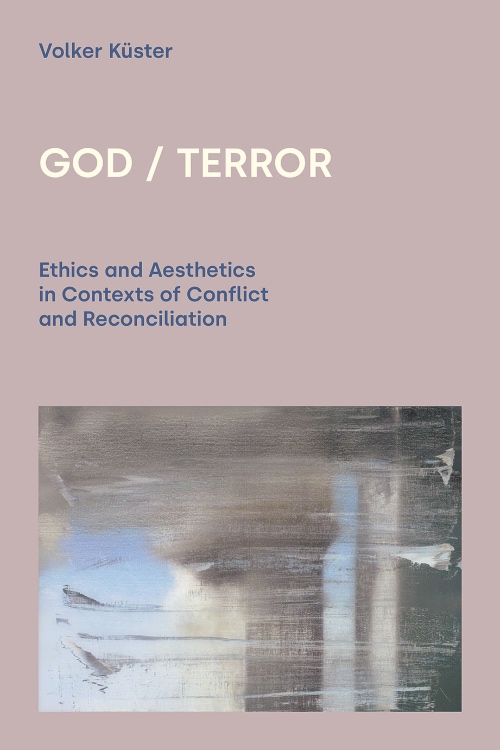God/Terror - Ethics and Aesthetics in the Contexts of Conflict and Reconciliation by Volker Küster
Küster is urging theologians and biblical scholars to find and identify God in art and culture, pleading for the opening up of hitherto rarely explored territory as he addresses the quest for God in the context of oppression, violence and terror from an aesthetic perspective.
 God/Terror - Ethics and Aesthetics in the Contexts of Conflict and Reconciliation
God/Terror - Ethics and Aesthetics in the Contexts of Conflict and Reconciliation
By Volker Küster
Equinox, Sheffield
ISBN: 9781800500938
Reviewed by Alec Gilmore
If I were asked to suggest a dozen important books that have crossed my desk in the last five years this would come high on the list for subject and relevance, content and clarity. (For ‘aesthetics’, think ‘sensual manifesations’).
The prologue sets the course. ‘Theology has to perform an aesthetic turn (sic) if it wants to break out of its current isolation’. Theologians and biblical scholars are urged to come out of their comfort zone (biblical texts and Christian tradition), to find and identify God in art and culture, and not only in the good (love and beauty) but also in the not-so-good (exploitation and racism) and (wait for it!) the positively evil (terrorism and apartheid).
Some encouragement may be found in that the tide is slowly washing in on their shore. Compared to 50 years ago a number of biblical scholars have come a fair way out of their comfort zones with Liberation and Third World theology, narrative and feminist readings and the like, though mostly on familiar territory. What Küster is pleading for is the opening up of hitherto rarely explored territory as, for example, when a lay theologian and an Indian Christian artist independently interpret the terrorism of 9/11 as ‘iconoclasm . . . destroying symbols of the the economic, political and military power of the US‘, compounded only by a Composer who ‘saw this barbarism as ‘the greatest work of art ever’ (p 2).
If that is the boulder intended to make a splash, before jumping to conclusions it is worth a careful reading of the whole chapter (‘Terror, War and Violence’, pp 5-29) and the Epilogue, (pp 85-6) while keeping an eye on the common ground of artists and theologians alike, such as ‘birth, illness, suffering and death, hatred and friendship, violence and horror, as well as happiness and love’ (p 2).
Chapter 2 (‘Guilt Reconciliation and Grace’) explores ‘God Talk in the context of Political Conflicts in Germany, South Korea and South Africa’. (pp 32-83). While theologians are being encouraged to ‘find God’ in the unfamiliar territory of Art and Literature some artists are already showing interest in issues such as guilt and reconciliation.
In Hanover, for example, close by the Sprengel Museum, with an exhibition of Living Sculpture (‘Made in Germany’), a young actor was seen silently handing out little cards to the visitors, containing one sentence, ‘Have you come here for forgiveness?’ Suddenly, visitors who thought they had just come to look . . . (at the art) felt compelled to see . . . (themselves), and the possibility of personal guilt. From there switch to South Africa where personal guilt is fundamental to Desmond Tutu’s handling of the Truth and Reconciliation Commission (pp 76-80).
Artist and Theologian are seeking to ‘find God’ in a (sacred) place of reconciliation, one in an art exhibition the other in a highly charged and delicate political operation.
Today, where some perpetrators of secularised culture are in denial as to its Christian origins, theologians have to bend over backwards to uncover traces of God. Therein lies the challenge to preachers in their sermons and churches in their programmes, calling particularly for attention to language, tolerance and a preference other people’s perceptions rather than a propagation of our own.
The length (108 pages) belies its importance — enough to make the point and stimulate further thought without getting lost in too much detail.
Alec Gilmore is a Baptist minister
Baptist Times, 08/10/2021